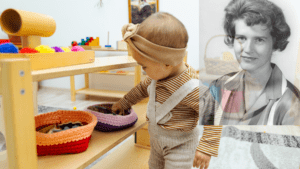Early childhood care and education (ECCE) is a comprehensive approach that covers the range from birth to eight years of age. During these years the children’s brains develop rapidly. Children require a nurturing, supportive, and stimulating environment that addresses their physical, social, emotional, and cognitive needs. They should be provided with high-quality care, during these years that can assist them in reaching their full potential.
UNESCO believes early childhood care and education (ECCE) is the foundation for emotional wellbeing and learning throughout life and it promotes holistic development, gender equality and social cohesion.
Then, are you eager to learn about the program?
The Objectives of Early Childhood Education
Early Childhood Care and Education (ECCE) include the integral components of early learning, play, and health in a safe and supportive environment. It is a crucial building block for learning and development throughout life and has long-lasting effects on early childhood development.
The primary objective of early childhood care and education is to promote a child’s full potential development and lay the groundwork for all-around growth and lifelong learning. While parents and the home are primarily responsible for a child’s welfare, a strong partnership between the community and ECCE centres is crucial for the child’s welfare and the accomplishment of the following goals.
- Enable a sound foundation for physical and motor development as per the child’s potential
- Imbibe good health habits, hygiene practices and self-help skills
- Enable children for effective communication and expressive language
- Promote development and integration of the senses
- Stimulate intellectual curiosity and develop conceptual understanding of the world around
- Provide opportunities to explore, investigate and experiment
- Prepare the children for kindergarten and higher schooling.
- Enhance overall personality development
Pros of Early Childhood Education
The right and high quality care during early childhood education has numerous academic and social-emotional advantages that last throughout a child’s life for spans of years. Children who receive early childhood education are more likely to make new friends, pick up new habits, and become independent at an early age. Let’s explore and know the benefits of early childhood education.
-
Cognitive Development – During ECCE years, children easily grasp all new knowledge. The results would be very delightful as soon as the child starts attending the classes. And the children themselves are thrilled to impress those around them with enhanced capabilities. It promotes children’s brain development in the appropriate way.
- Communication Skills – A child learns to communicate with peers and other adults in addition to their loved ones. This kind of interaction will teach a child how to negotiate and form friendships. This will be a huge benefit for him when he enrols in a bigger school and has to communicate on his own in absence of his parents. These children usually adjust quicker. Early childhood education improves the communication between students and educators
-
Emotional Development – ECCE promotes more technologically advanced and innovative teaching techniques. The children receive well-deserved praise from their parents and teachers during the lessons. They are pleased and encouraged to follow up. A child develops a healthy self-esteem by learning to evaluate their abilities objectively while participating in a group.
-
Strong Foundation & Early Independence – ECCE encourages children to become independent and self-assured by giving them the freedom to choose and pursue their interests within a set framework. One of a child’s most fundamental traits when they are in the ECCE years is independence. They want and need to assert themselves but still require a lot of guidance and nurturing. They have the chance to develop this sense of independence in ECE programs, which offers the ideal mix of structure and encouragement. The environment is safe and neutral.
- Focus and IQ – Children often find it challenging to sit at one place and do an activity. In the ECCE centres there is no compulsion for this. Classes are typically conducted in a more informal setting through play. Nevertheless, while paying attention to the educators and repeating after them, the children develop their ability to focus. This also fosters better IQ scores and makes them technically competent.
- School Readiness– ECE settings offer a routine and structure that teaches them about responsibility and time management. Children who participate in ECE programs find it easier to adjust to a structured learning environment and make the transition to formal schooling quite smooth and less intimidating.
- Long Term Success – In addition to providing for the child’s safety, a high-quality early childhood education also fosters a lifelong love of learning. Children who enrol in top-notch ECCE programs typically outperform their peers academically and have a higher likelihood of finishing high school with better grades.
Cons of Early Childhood Education
Early childhood care and education (ECCE) has a lot of benefits, but there may also be some disadvantages or difficulties with these programs that need to be taken into account. The disadvantages of ECCE programs are as follows –
- Cost – Intensive or private ECCE programs can be expensive. The technology implemented to teach the children costs high at times. Parents need to plan properly before beginning the ECCE programs for the children.
- Lack of facilities – Few educational institutions maintain an inappropriate student to teacher ratio, which hinders growth. The absence of an appropriate curriculum, student management techniques, and syllabus negatively impacts children.
- Separation Anxiety – For some children separation from parents can be overwhelming and leads to anxiety. This emotional experience marked by anxiety can also be depressing for the child in the beginning. This may also lead to difficulties while learning or behavioural problems.
- Scheduling – During the summer or on holidays, many ECCE are closed for long stretches of time. This might not fit in with working parents as they would have to find something else to do during those times. This could not only cost more but also be a problem for pick and drop.
Conclusion
In conclusion, a quality early childhood and care education,ECCE program, can provide both immediate and long-term social, academic, and economic benefits. Despite this, attending the program is not an assurance of success. Numerous additional elements are also at play, such as upbringing and family circumstances, financial resources, and social support.
However, there are numerous advantages for the children, some of which may be long-lasting. Parents should carefully consider and select ECCE programs. It’s critical to keep in mind that the effects of ECCE vary depending on the program’s quality, the needs of the particular child, and the family’s values.




